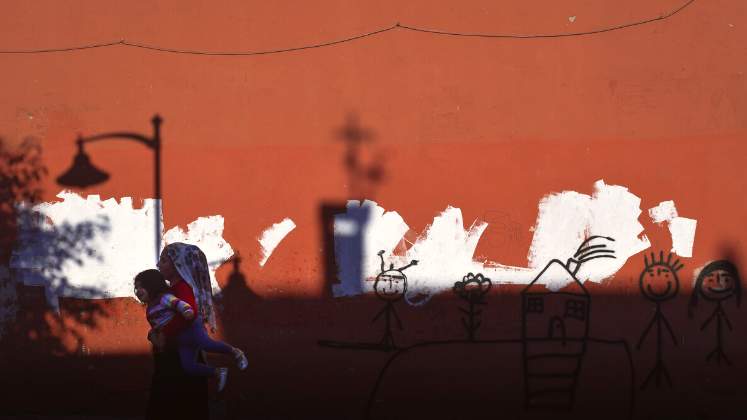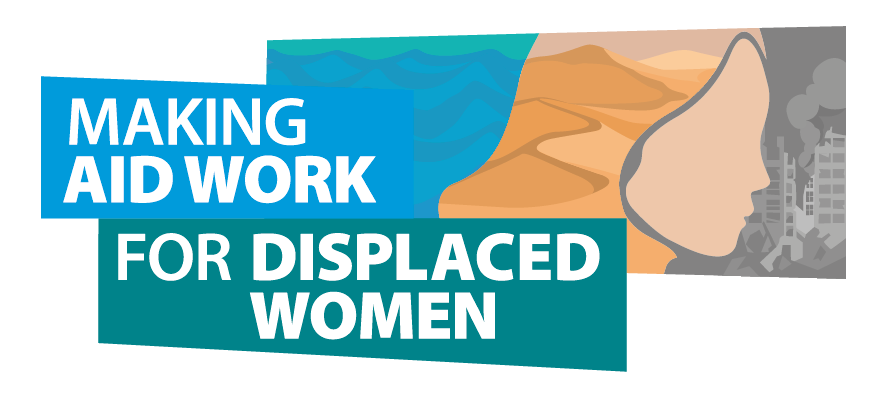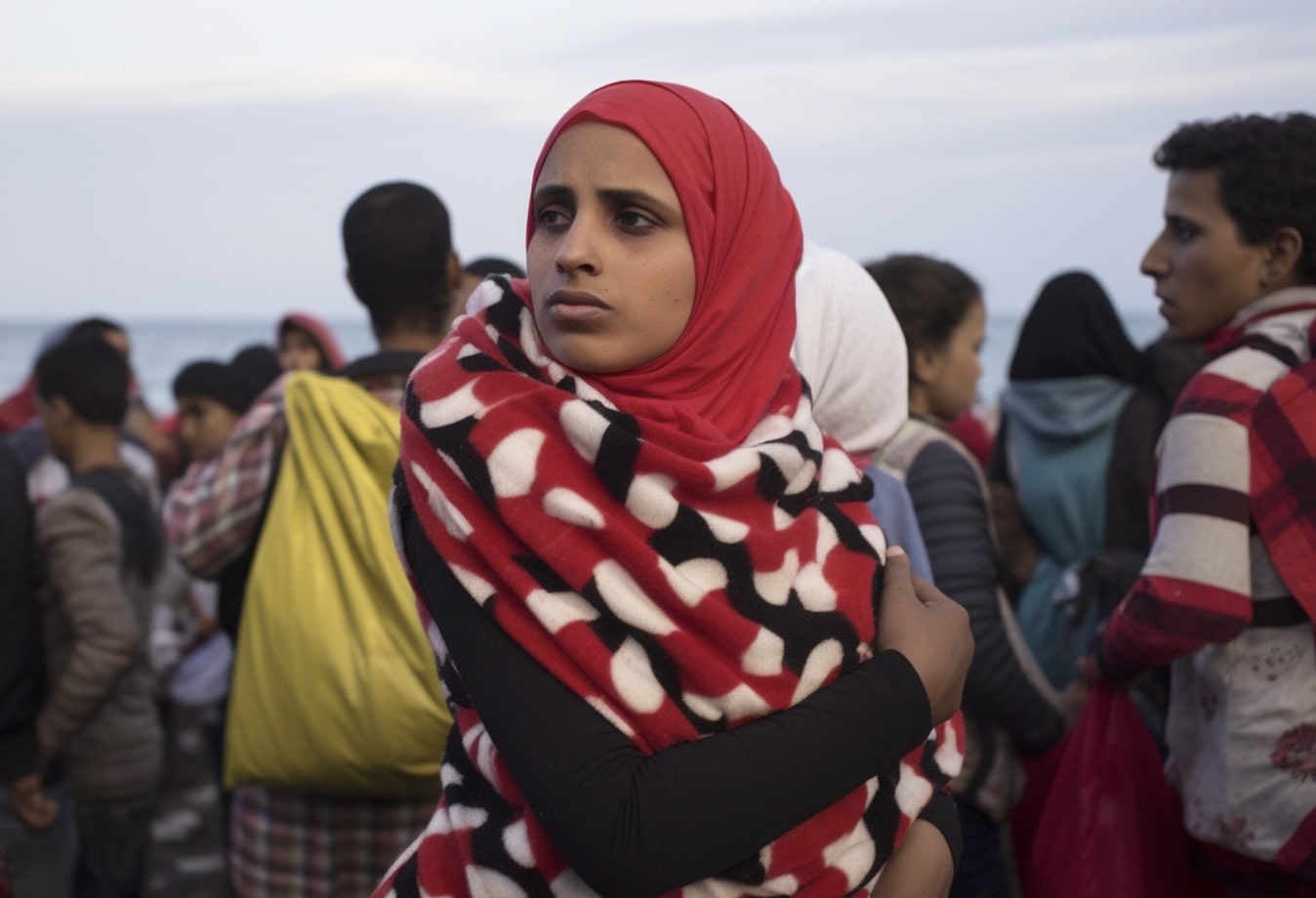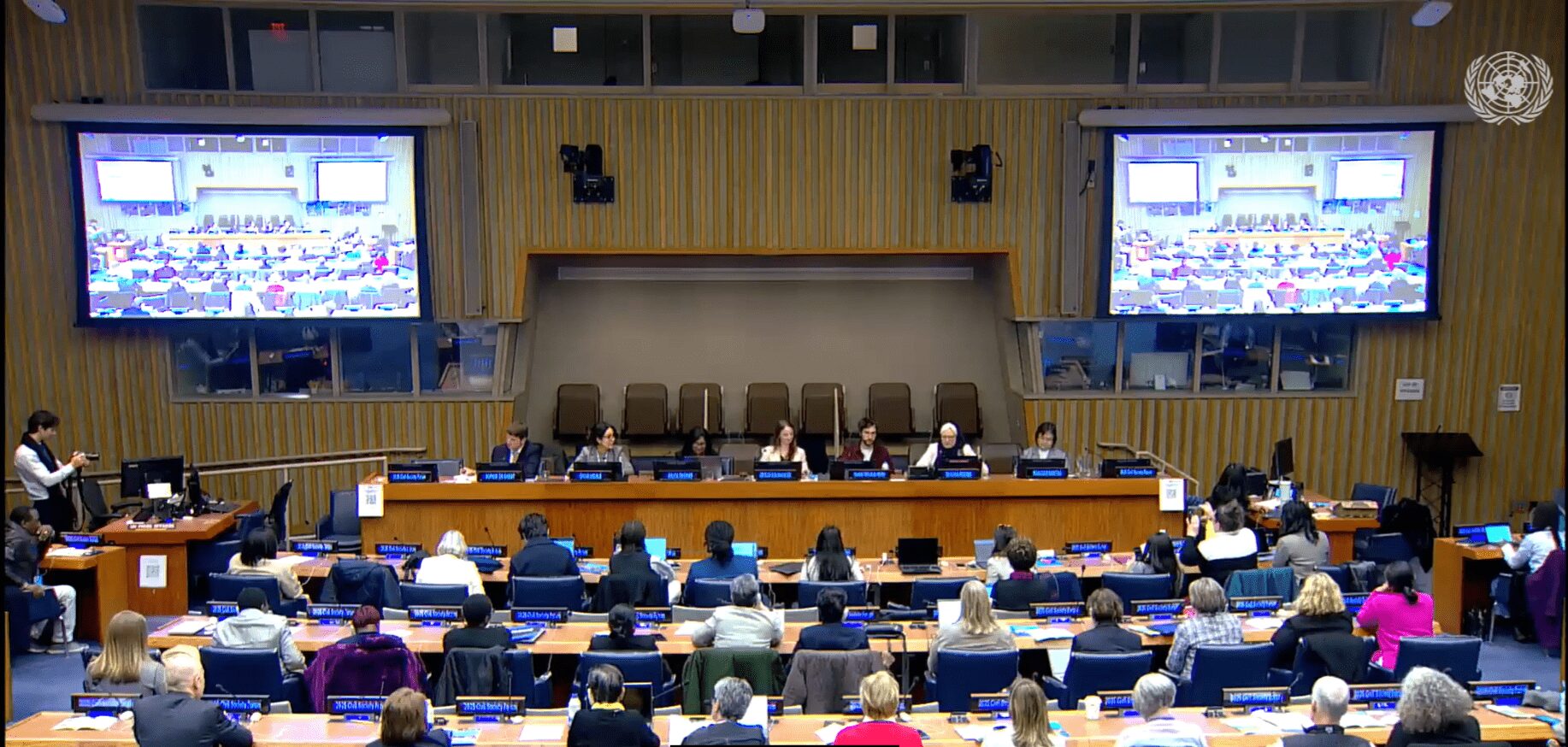
11 February 2025
Humanitarian responses to violence against women (VAW) in forced displacement rarely account for religion as an influential intersecting category shaping women’s experiences. Yet, Dr Sandra Iman Pertek writes that religion remains an important matter for many displaced women, which should be integrated into interventions for resilience building and vulnerability reduction.

Forced displacement is a reality for millions of women and is increasingly a feminised global challenge. Forced migrant women fleeing conflict and climate emergencies are subjected to increased risks of multiple forms of violence and exploitation. Violence against women in forced displacement occurs along the continuum, from conflict and transit to refuge: the longer the displacement, the higher exposure to abuse and exploitation at the hands of multiple perpetrators.
My PhD research explored the religious influences on experiences of violence against women (VAW) in forced migration. I engaged with 38 displaced women and 36 humanitarian practitioners. Drawing on intersectional and socioecological analysis of VAW in forced migration, I aimed to capture the multi-layered discrimination and diverse expressions of resilience of displaced women in Turkey and Tunisia.
First, the findings reveal the importance of religion for displaced women, which practitioners often overlook. Religion remains a less often defined category in humanitarian action than other recognised categories of vulnerability and is at a similar stage where race was conceptualised in the 60s and gender in the 70s.
Second, two dimensions of religion came to light: resilience resource and intersectional vulnerability. Yet, humanitarian responses undertaking intersectional approaches often focus on gender, age, disability, and, increasingly, race, overlooking religion. Similarly, the ecological approaches to resilience tend to dismiss religion, despite extensive evidence that displaced women draw great strength from religion.
Religion as intersectional vulnerability
Multiple intersectional factors cause violence against displaced women. In survivors’ experiences, religion intersects with other factors, such as gender, immigration status, age, and race. In Turkey, aid dependency and lack of income and work exposed women to sexual harassment in local settled and refugee communities. In the case of domestic violence, social, cultural, and religious norms intertwined in complex ways, perpetuating women’s vulnerability. For some victims, religious beliefs, such as endurance, patience, and a greater reward in the afterlife, played a role in deterring them from seeking support.
In pan-African transit, forced migrant women were targeted for their illegal status and perceived vulnerability as migrants deprived of financial and social resources. Some women survivors felt they were sexually exploited by guards in detention centres and by smugglers in exchange for travel passes because of their race.
…They don’t ask me, ‘Are you a Christian? Are you a Muslim?’ No. They just abuse me.
Melanie from Cameroon, asylum-seeker in Tunisia
In contrast, a few survivors considered their religious identity was targeted in domestic and transnational transit. Syrian and Iraqi women living in occupied areas and armed conflict were targeted by armed groups based on their perceived religious belonging suggested by their religious attire, indicating religious symbolism could expose them to increased risks of gendered violence in complex geopolitical conditions.
Religion as resilience resource
The study also reveals that religion is an important resilience resource and primary coping mechanism for displaced women survivors of violence and exploitation. With the loss of family and financial resources, for many women religion remained the only available resource in displacement.
We were seeing a lot of people dying…The states changed…but we were still praying. Whatever the difficulties, we always pray, we cry, we pray, with the strength that God gave me to walk in the desert to reach the border…I was pregnant…
Sophia from DRC, migrant in Tunisia
Women’s resilience and coping capacities were strengthened by personal religious resources – their religious beliefs, practices, and spiritual experiences often in close-to-death experiences having survived armed attacks and nearly drowning. Communal religious resources (e.g. religious organisations) were less available as displaced women were often isolated from host communities. Women used a range of cognitive, behavioural, and spiritual religious coping tactics which helped them make sense of their experiences, keep calm, find strength and patience, and heal through their divine connection.
Religion is everything in my life; it’s what’s keeping me going, it strengthens me because I know that in the end, there’s the Day of Judgment, and we always hope that Allah will open doors for us…
Amina from Syria, refugee in Ankara
In some circumstances, however, for example, sexual trafficking, detention, and religious persecution, women could not use their religious coping methods – such as prayers and reading religious scriptures – freely due to fear of oppression, physical barriers, and lack of religious accessories.
The religious (dis)engagement in humanitarian responses
The study also indicates humanitarian and migration policy and practice insufficiently account for religious factors intersecting with other identity markers in women’s experiences of violence. Practitioners engage with religion selectively across a religious (dis)engagement continuum: from avoiding religion, reacting to religion in instrumentalist and pragmatic ways, to actively working with religion. However, the humanitarian default identified was to avoid religion in VAW responses, often justified by efforts to adhere to humanitarian principles while ignoring survivors’ religious needs and freedoms.
…there’s even sort of a prejudice within the international humanitarian and development system… they’re like seeing religion…culture, tradition as all negative, ‘we need to modernise these people…so they’re not so dependent on these old ways of thinking’…
Kate, Former GBV Coordinator, INGO
Humanitarian agencies that expressed that they worked with religion did so for pragmatic reasons, such as to contextualise their responses to local situation and help transform social norms underpinning VAW, and to help survivors heal. It is fair to conclude that the extent of faith sensitivity inadvertently impacts the capacity of humanitarian interventions to support displaced survivors, either by recognising or ignoring their religion-related needs, resilience, and vulnerability.
The urgency to integrate religion into responses to VAW
The above findings indicate that the approaches to VAW in forced displacement settings with strong religious influences require adaptation. With eight in ten people maintaining some religious affiliation globally (PEW, 2010), it is essential for humanitarian policy and practice to recognise the significance of religious influences on displaced women’s resilience and vulnerability.
In humanitarian practice, religion should be included as an intersecting social category in the intersectional and socioecological approaches to addressing social vulnerability and resilience. It can be seen as a cross-cutting issue interacting with gender, age, and race. Religion should be seen, therefore, as part of the lived experiences of displacement.
It is time for policymakers and practitioners working with displaced populations to pay attention to the multidimensional impacts of religion on displaced populations if they are to effectively mitigate risks associated with religion, such as religious discrimination and persecution and tolerance of spousal violence.
Also, it is time for mental health and psychosocial support (MHPSS) practitioners to recognise and support the religious coping mechanisms of displaced populations, regardless of their own philosophical or religious worldview. With religious sensitivity, the specific needs and capacities of displaced women survivors who are religious and their intrinsic expressions of resilience can be supported more effectively.
This post draws upon the policy briefing “Protection from violence against women in forced displacement: Integrating religion into intersectional and socioecological approaches” from the ESRC funded project Integrated intersectional and socioecological approach: Engaging with religion to strengthen protection from violence against women in forced displacement.



